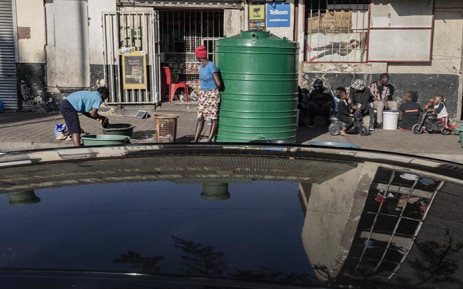
As jobs dry up, some foreign nationals struggle under lockdown
In Brixton, Ralph Sithole said his wife was employed at a restaurant and had not been working for weeks.
by Edwin NtshidiJOHANNESBURG – COVID-19 has dealt a heavy financial blow to many people who have lost their livelihoods.
This situation has also adversely affected foreign nationals, particularly those who hold jobs in the informal economy.
According to the lockdown regulations, only foreign nationals who have legal papers to be in South Africa or were registered refugees qualified for the government’s special COVID-19 Social Relief of Distress Grant (SRD) of R350.
Eyewitness News spoke to several people who had fallen on hard times.
South Africa has a large migrant population, the majority of whom live in big cities such as Johannesburg, Cape Town, and Durban.
According to the World Migration Report 2020, South Africa remained the most significant destination on the continent with around four million international migrants residing in the country.
Many of the migrants worked in low paying menial work and during the lockdown, jobs have dried up.
Richard Rams is a father of four who lives in Doornfontein in downtown Johannesburg. The Zimbabwean national was working in construction before everything came to an abrupt halt in March.
“Last week, we received food parcels from a donor, and it is now finished. So, I don’t know how we are going to survive going forward,” Rams said.
WATCH: Some foreign nationals aren’t coping in SA with COVID-19 lockdown
Sbonginkosi Nono was surviving on motorists’ handouts on street corners. But these are few and far between.
“For now, I’m all alone and we would like the South African government to help us with food,” Nono said.
In Brixton, Ralph Sithole said his wife was employed at a restaurant and had not been working for weeks.
Thanks to the generosity of community members, he was able to scrape up some food for his family.
“I’ve been surviving with these piece jobs that I’m getting, and some people also give me food where they can,” he said.
Last week, Human Rights Watch accused the South African government of bias in the distribution of food aid. It said asylum seekers and refugees were overlooked.
For official information about COVID-19 from the Department of Health, please click here.